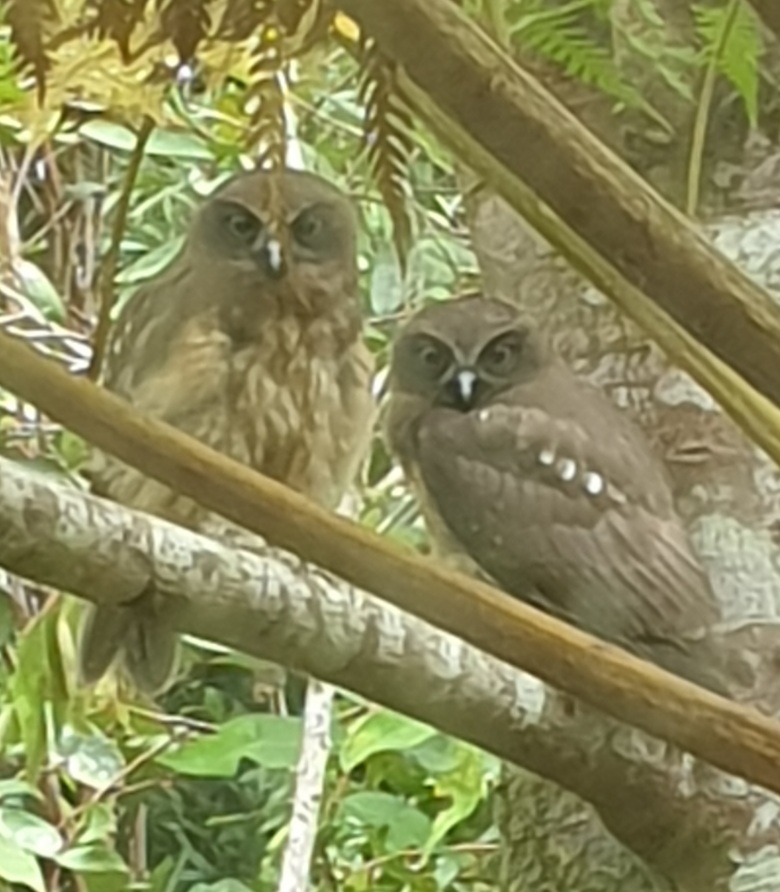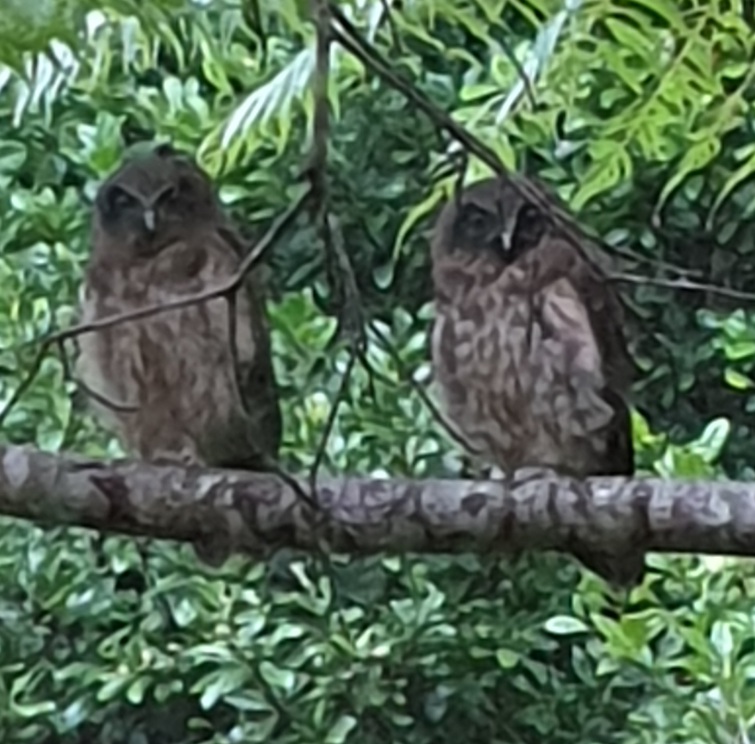A couple of weeks ago, we were gifted with the rare treat of boobook owls. Boobooks are Australia’s smallest and most widespread owls, and, as with most owls, are seldom seen. In the Hawk Owl family (genus Ninox), these fledglings appear to be the more commonly distributed subspecies, Ninox boobook ssp boobook, rather than the rainforest subspecies of lurida, which is interesting as it means both subspecies must overlap in range here at Paluma.
We had heard both boobook and lesser sooty owls the previous evening, and saw at least one of the adult parent birds very early, from the bedroom window. The photos were taken from the lounge room window. These fledglings were being guarded by an adult bird, who quickly flew into the forest when spotted, but the fledglings stayed put for most of the morning, giving us a glorious opportunity to watch them watching us!

Owls are apex predators in many environments, and are at risk of consuming or accumulating toxins used to control pest species such as insects and rodents. While in Paluma, commercial spraying of pesticide is not a threat to these birds, the indiscriminate use of rodent poison certainly is. We ask all residents to consider live trapping for control of rodents over use of toxic baits. This provides not only the opportunity to identify the trapped animal, and release in a suitable location if one of our valuable endemic species, but also prevents the inevitable leeching of these toxins into our environment. After all, wouldn’t it be nice to have more owls around so that they can control the rodents instead!

Article & Photos by Sarah Swan
